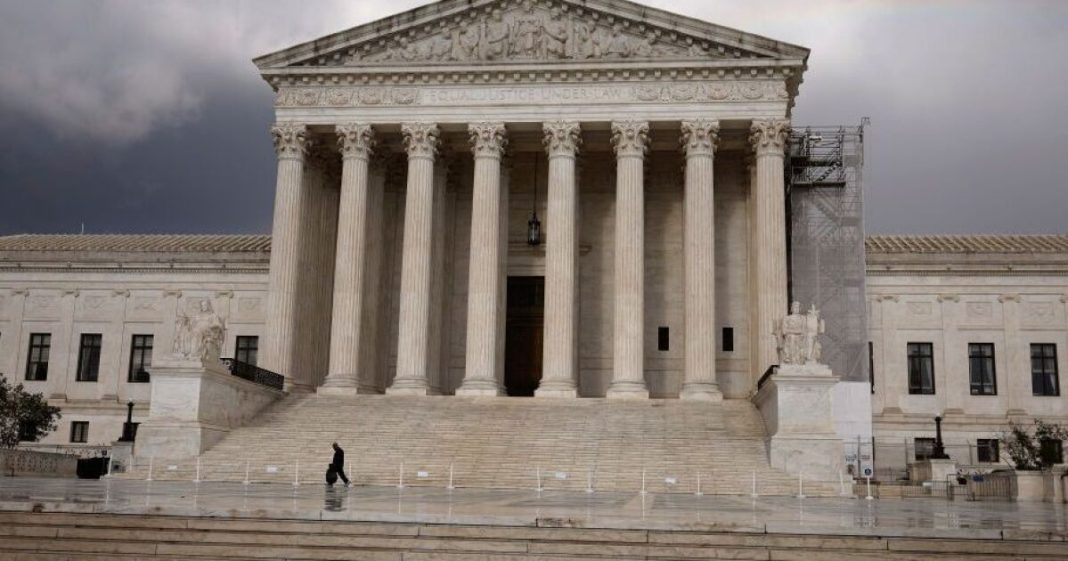Supreme Court Weighs Richard Glossip’s Fate in High-Stakes Death Penalty Case
In a gripping legal showdown, the U.S. Supreme Court heard arguments on Wednesday regarding the fate of Richard Glossip, a death row inmate in Oklahoma who has spent over 25 years fighting for a new trial. The case has drawn national attention, pitting Oklahoma’s Attorney General Gentner Drummond against the state’s highest court for criminal appeals. At the heart of the matter is whether Glossip’s original trial was tainted by prosecutorial misconduct, a claim that could potentially lead to a new trial for a man who has been convicted twice for a crime he insists he did not commit.
Glossip’s story is one of tragedy and controversy. He was convicted in the 1997 murder of Barry Van Treese, a motel owner, based largely on the testimony of Justin Sneed, a handyman who confessed to the murder. In exchange for his testimony against Glossip, Sneed received a life sentence instead of the death penalty. Prosecutors argued that Glossip orchestrated the murder to avoid being fired or to steal money, but they never claimed he physically participated in the crime. Over the years, Glossip has faced numerous appeals, including a previous one that reached the Supreme Court, all of which have been unsuccessful.
In a surprising turn of events last year, Attorney General Drummond commissioned an independent investigation into Glossip’s case, which concluded that he had been denied a fair trial. This led Drummond, a Republican and supporter of the death penalty, to request a new trial for Glossip, citing prosecutorial misconduct and the suppression of evidence that could have aided the defense. While Drummond did not assert Glossip’s innocence, he argued that the evidence against him was flawed and that he deserved another chance in court.
However, the Oklahoma Court of Criminal Appeals rejected Drummond’s request, prompting the attorney general to take the matter to the Supreme Court. During the arguments, Drummond’s lawyer, Paul Clement, emphasized that the state court’s dismissal of the attorney general’s findings was unjust, stating that the acknowledgment of an unfair trial should be taken seriously.
As the justices deliberated, it became clear that the outcome was uncertain. Chief Justice John Roberts echoed the Oklahoma court’s skepticism, questioning whether the jury would have been significantly influenced by the fact that Sneed, the key witness, was bipolar and receiving treatment. Justice Brett Kavanaugh raised concerns about Sneed’s credibility, suggesting that knowledge of his mental health and potential dishonesty could impact how a jury viewed his testimony. Meanwhile, Justice Amy Coney Barrett highlighted the unusual nature of the state court’s refusal to accept the attorney general’s request for a new trial.
On the other hand, the court’s more liberal justices expressed their outrage at the potential miscarriage of justice. Justice Sonia Sotomayor pointed out that prosecutors were aware of Sneed’s lies and failed to correct them, while Justice Elena Kagan bluntly stated that the case hinged on the credibility of a single witness who had been exposed as dishonest.
Adding to the complexity of the case, Justice Neil Gorsuch recused himself due to his previous involvement in Glossip’s appeals, leaving only eight justices to decide the matter. A tie would uphold the Oklahoma court’s ruling, potentially leading to Glossip’s execution.
As the arguments concluded, the stakes couldn’t be higher. If the Supreme Court rules in favor of Glossip, he could receive a new trial, but if they side with the Oklahoma court, he could face execution once again. In the meantime, Glossip’s fate may also hinge on a clemency request to the state Pardon and Parole Board, which has seen its own share of complications in the past.
This case not only raises profound questions about the death penalty and the justice system but also highlights the ongoing debate over the reliability of witness testimony and prosecutorial ethics. As the nation watches, the Supreme Court’s decision could have far-reaching implications for Glossip and the broader landscape of capital punishment in America.



